- Jumlah paparan: 863
Garis Panduan Aktiviti Hiburan (Konsert) Di IPT: UMS Komited Pastikan MPP Dilibatkan
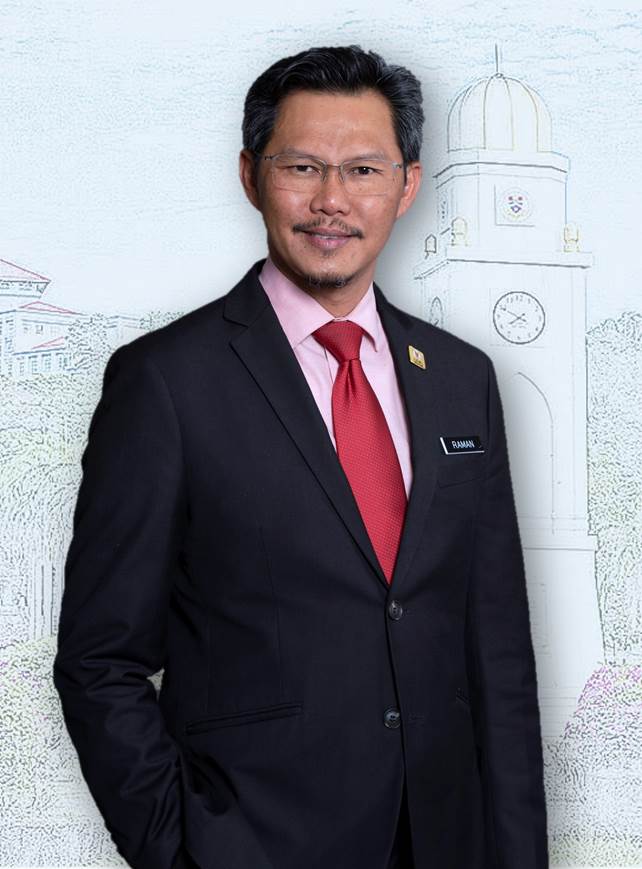 Universiti Malaysia Sabah (UMS) komited dalam memastikan Majlis Perwakilan Pelajar (MPP) terlibat secara langsung dalam menggubal dan merangka garis panduan berkaitan aktiviti hiburan (konsert).
Universiti Malaysia Sabah (UMS) komited dalam memastikan Majlis Perwakilan Pelajar (MPP) terlibat secara langsung dalam menggubal dan merangka garis panduan berkaitan aktiviti hiburan (konsert).
Timbalan Naib Canselor (Hal Ehwal Pelajar dan Alumni) UMS, Prof. Madya Dr. Raman Noordin dalam satu kenyataan menjelaskan, pihak pengurusan universiti juga menyokong penuh agar garis panduan tersebut digubal dan dirangka oleh Institusi Pendidikan Tinggi (IPT) masing-masing mengikut kesesuaian dan lokaliti IPT serta berpandukan saranan oleh Jabatan Pendidikan Tinggi, Kementerian Pendidikan Tinggi (JPT, KPT).
“MPP sejak sekian lama memainkan peranan penting dalam menyuarakan pandangan serta isi hati para mahasiswa, justeru itu penglibatan MPP dalam merangka garis panduan ini adalah wajar agar suara dan keperluan setiap mahasiswa diambil kira.
“Hal ini juga sekali gus dapat memastikan agenda pemerkasaan mahasiswa berada di landasan yang tepat selaras dengan hala tuju yang ditetapkan oleh Menteri Pendidikan Tinggi, Dato' Seri Mohamed Khaled Nordin,” katanya.
Beliau berkata demikian sebagai maklum balas kepada kenyataan media oleh JPT berkaitan arahan agar pengurusan IPT memastikan MPP dilibatkan dalam proses perangkaan garis panduan tersebut, semalam.



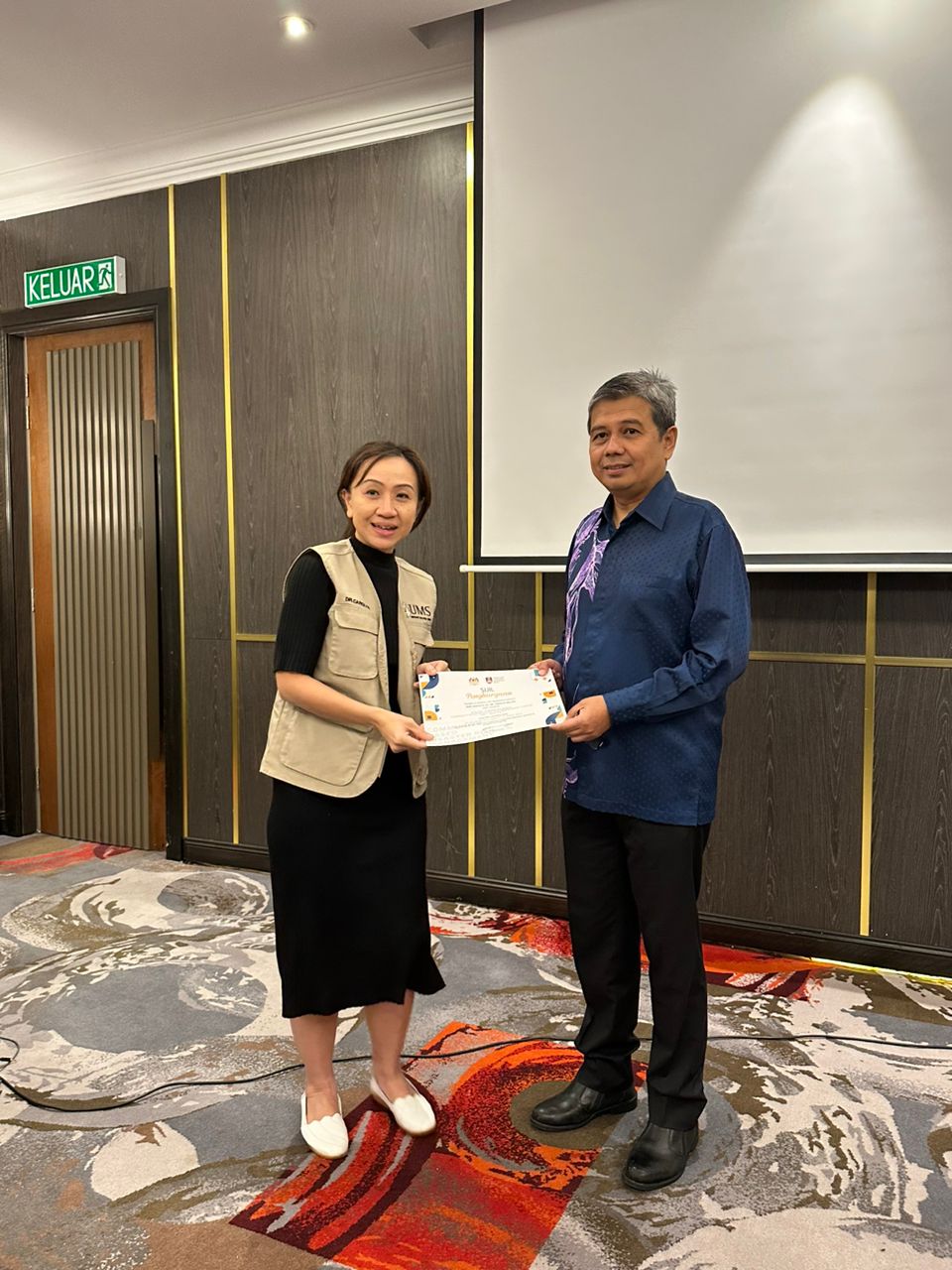 Pusat Kajian Bencana Alam (NDRC), Universiti Malaysia Sabah (UMS) terus aktif menyumbang dalam merangka inisiatif-inisiatif berkaitan pengendalian risiko bencana alam.
Pusat Kajian Bencana Alam (NDRC), Universiti Malaysia Sabah (UMS) terus aktif menyumbang dalam merangka inisiatif-inisiatif berkaitan pengendalian risiko bencana alam.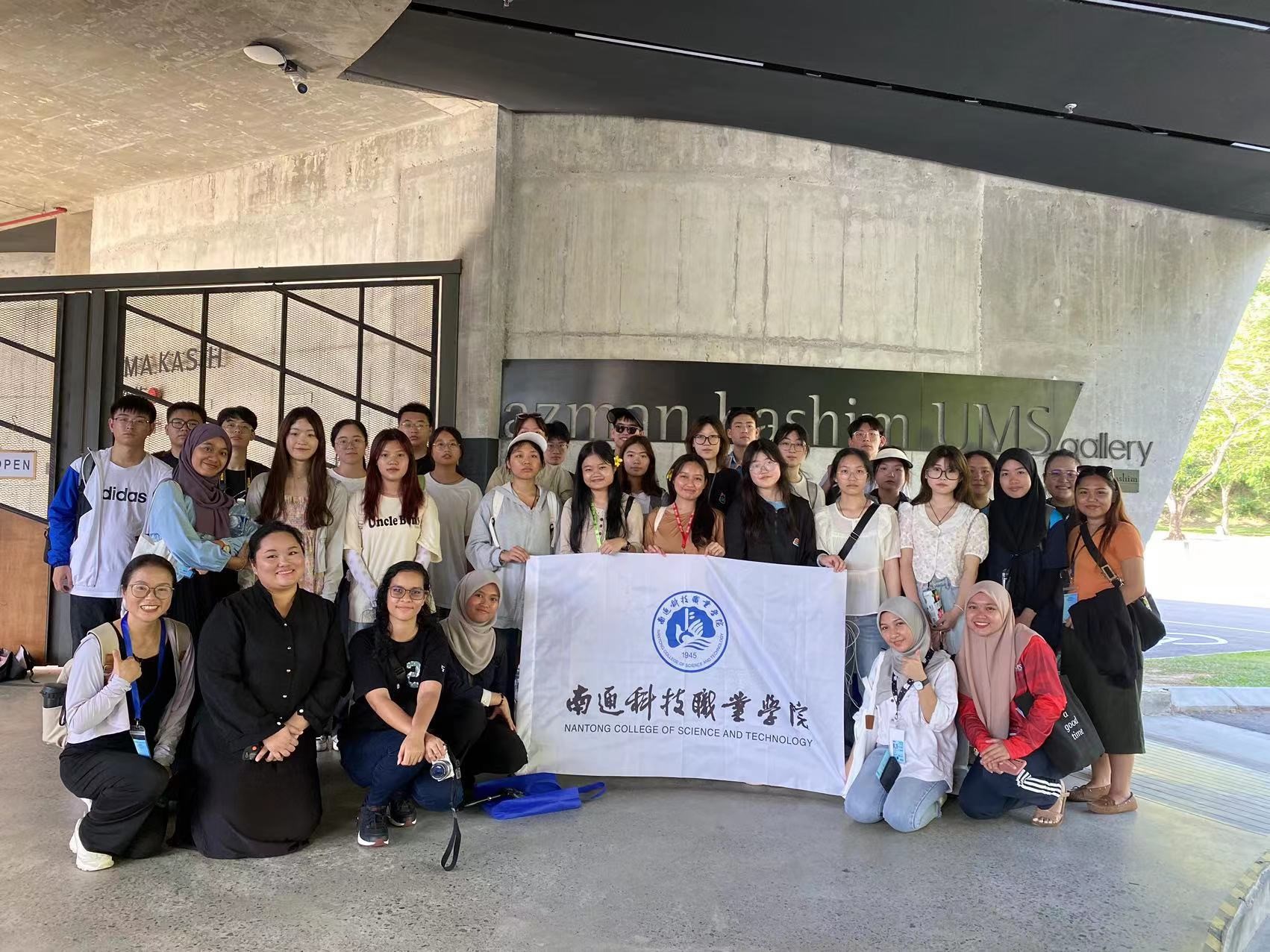 Kolaborasi antara Fakulti Perniagaan, Ekonomi dan Perakaunan (FPEP), Universiti Malaysia Sabah (UMS) dengan Nantong College of Science and Technology China (NCST) dalam program Summer Educational Tour baru-baru ini mampu membantu peserta untuk mendalami budaya masyarakat Sabah.
Kolaborasi antara Fakulti Perniagaan, Ekonomi dan Perakaunan (FPEP), Universiti Malaysia Sabah (UMS) dengan Nantong College of Science and Technology China (NCST) dalam program Summer Educational Tour baru-baru ini mampu membantu peserta untuk mendalami budaya masyarakat Sabah.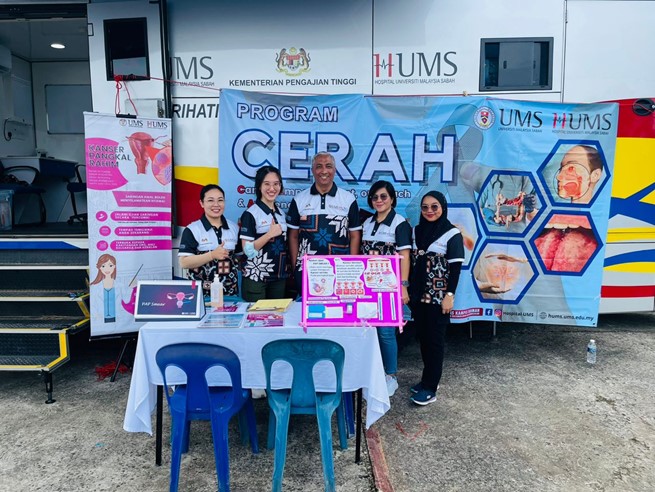 Hospital Universiti Malaysia Sabah (HUMS) terus mempergiatkan program Cancer Empowerment, Outreach and Awareness (CERAH) dengan menyantuni masyarakat di Felda Sahabat, Lahad Datu dan Kg Gum-Gum, Sandakan baru-baru ini.
Hospital Universiti Malaysia Sabah (HUMS) terus mempergiatkan program Cancer Empowerment, Outreach and Awareness (CERAH) dengan menyantuni masyarakat di Felda Sahabat, Lahad Datu dan Kg Gum-Gum, Sandakan baru-baru ini.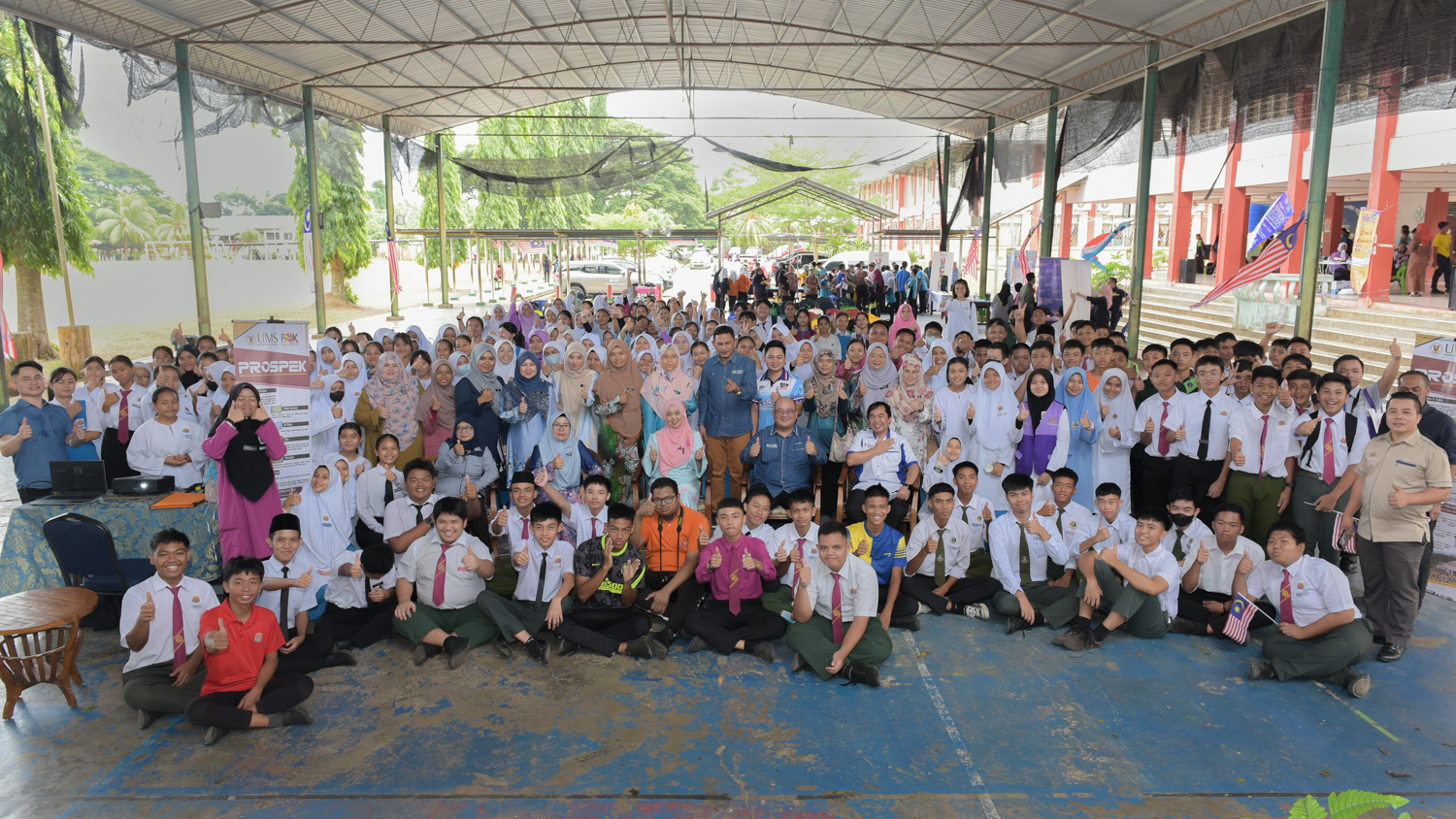 Fakulti Perubatan dan Sains Kesihatan (FPSK), Universiti Malaysia Sabah (UMS) telah meluncurkan siri jerayawara melalui Program Sejahtera Masyarakat Melalui Pendidikan Profesional (PROSPEK) di Sekolah Menengah Kebangsaan (SMK) Pinggan-Pinggan, Pitas, baru-baru ini.
Fakulti Perubatan dan Sains Kesihatan (FPSK), Universiti Malaysia Sabah (UMS) telah meluncurkan siri jerayawara melalui Program Sejahtera Masyarakat Melalui Pendidikan Profesional (PROSPEK) di Sekolah Menengah Kebangsaan (SMK) Pinggan-Pinggan, Pitas, baru-baru ini.